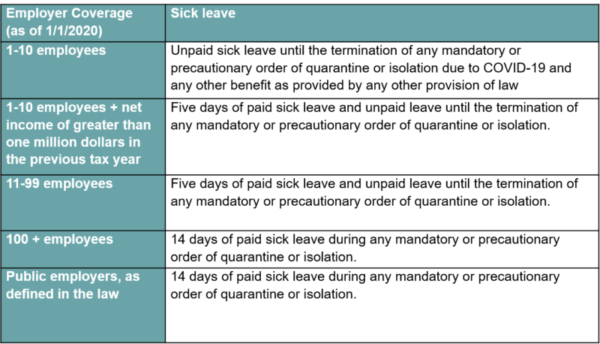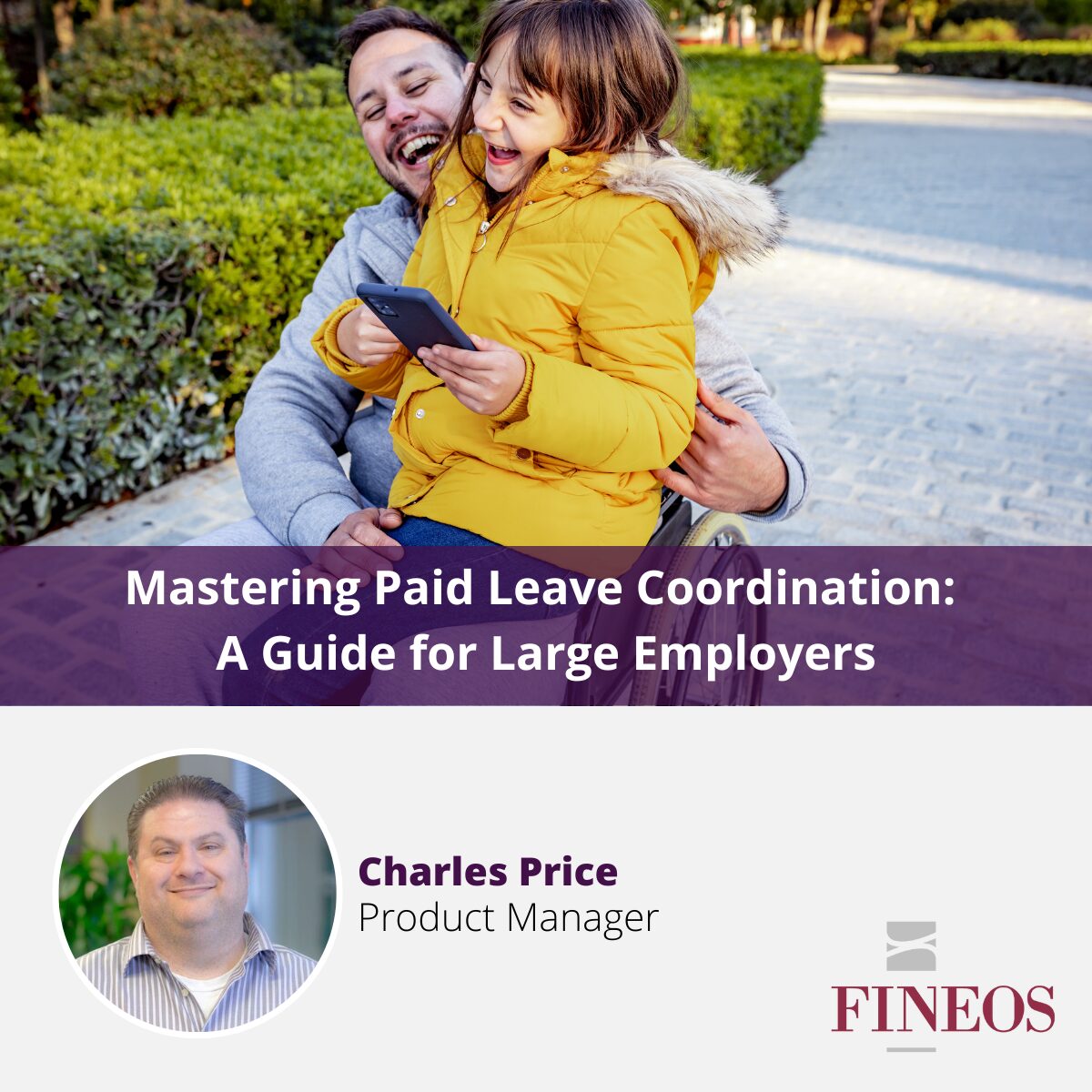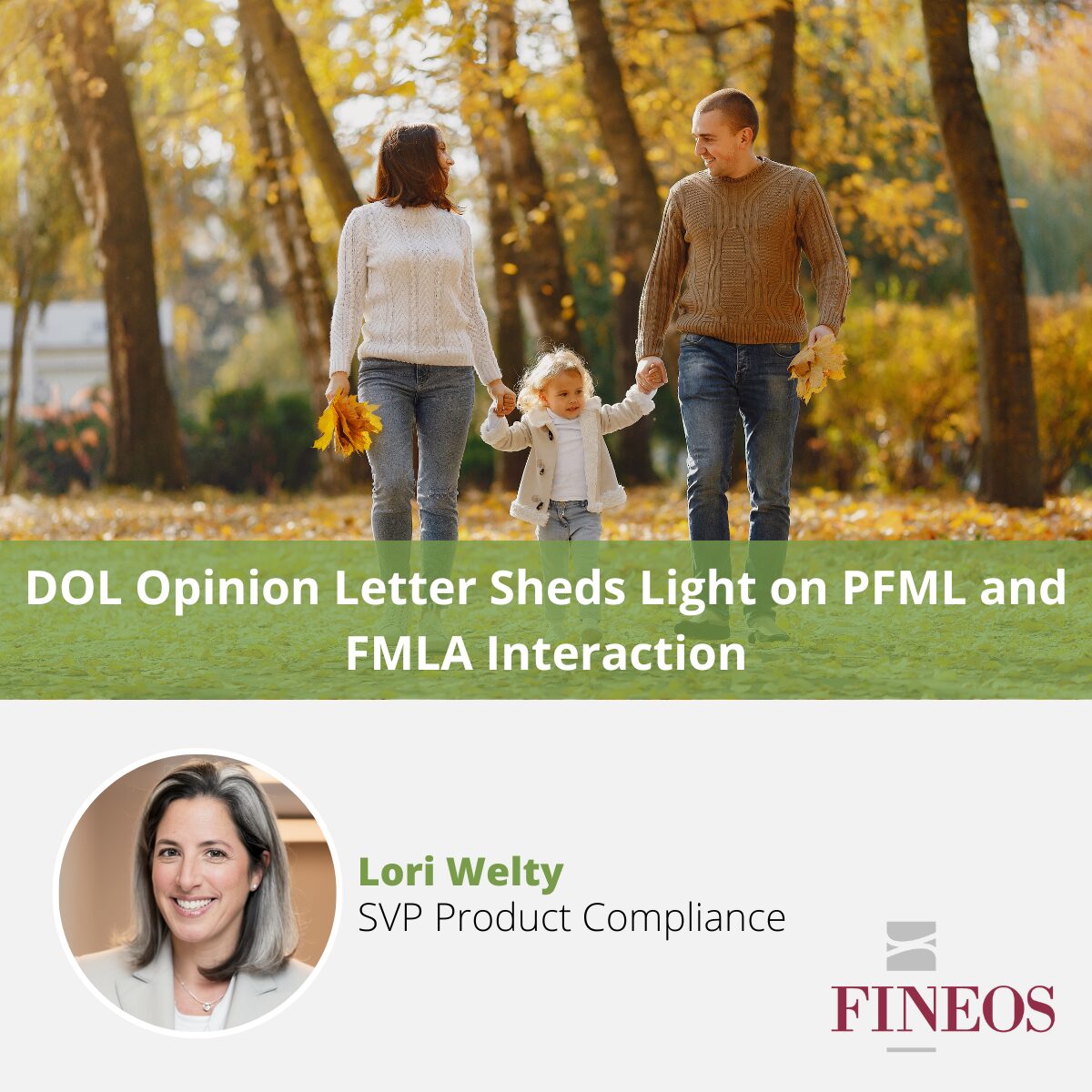New York State has enacted an emergency paid sick leave law and amended its Disability Benefits Law (“NY DBL”) and Paid Family Leave law (“NY PFL”) in response to the COVID-19 pandemic. The changes are effective immediately, as of March 18. The law does not contain a sunset provision. The law requires job-protected, employer-provided paid sick leave and additional disability (DBL) and paid family leave (PFL) benefits for employees who cannot work or telework due to COVID-19 related reasons.
Employer-provided Paid Sick Leave
Prior to this emergency measure, New York State did not have mandated sick leave, with the exception of locally enacted ordinances in New York City and Westchester County. The new law requires employers to provide job protected sick leave to employees (paid, in most cases), who are subject to a mandatory or precaution order of quarantine or isolation as follows:

New York DBL and PFL Changes
Employees of employers with less than 100 workers can claim benefits under the NY DBL and NY PFL programs for certain COVID-19 related absences, after the paid sick leave period exhausts.
New York DBL Benefits
The law provides an additional reason to obtain NY DBL benefits, with no waiting period, when an employee:
- has exhausted all available paid sick leave; and
- is unable to perform the regular duties of their employment or any other employment which their employer may offer as a result of a mandatory or precautionary order of quarantine or isolation due to COVID-19
New York PFL Benefits
The law provides additional reasons to obtain NY PFL benefits when an employee needs leave:
- because the employee is subject to a mandatory or precautionary order of quarantine or isolation due to COVID-19; or
- to provide care for the employee’s minor dependent child who is subject to a mandatory or precautionary order of quarantine or isolation due to COVID-19
NY DBL and NY PFL benefits can be payable concurrently, but an employee may not collect any benefits that would exceed $840.70 in NY PFL and $2,043.92 in NY DBL per week, subject to a maximum benefit. The law does not change the existing annual limits under the NY DBL and NY PFL program. The employee is entitled to job restoration upon return to work following leave taken pursuant to the new law.
Some exceptions exist under the New York’s law:
- Interactions with Federal law: As we wrote about yesterday, the U.S. Congress enacted the Families First Coronavirus Response Act (“FFCRA”). The NY law provides that if an employee receives sick leave and/or employee benefits pursuant to the FFCRA, New York benefits are inapplicable except where they would provide sick leave and/or DBL or PFL benefits in excess of the benefits provided by the FFCRA. In that case, the employee can claim the difference between the benefits available under the New York law and the benefits available under federal law. Since the laws provide different leave reasons and benefit limits, this will impact an employee’s entitlement and an analysis will need to be done to assess which law provides a more generous benefit to the individual employee.
- Asymptomatic Employee and Telework: The provisions of the law do not apply when the employee is asymptomatic or undiagnosed and is physically able to work while under a mandatory or precautionary order of quarantine or isolation, whether through remote access or other similar means.
- Travel against Prior Health Notice: An employee cannot receive paid benefits if the employee is subject to a mandatory or precautionary order of quarantine because:
- the employee has returned to the United States after traveling to a country for which the Centers for Disease Control and Prevention has a level two or three travel health notice;
- the travel to that country was not taken as part of the employee’s employment or at the direction of the employee’s employer; and
- the employee was provided notice of the travel health notice and the limitations of this subdivision prior to such travel.
Instead, the employee can use accrued leave provided by the employer, or if the employee does not have accrued leave or sufficient accrued leave, the employee is entitled to unpaid sick leave during the mandatory or precautionary quarantine or isolation.
Oregon Issues a Temporary Rule and Guidance
Oregon’s Bureau of Labor and Industries issued a temporary rule related to the Oregon Family Leave Act (OFLA) in response to COVID-19. The new rule provides that existing “sick child leave” under OFLA “includes absence to care for an employee’s child whose school or place of care has been closed in conjunction with a statewide public health emergency declared by a public health official.” BOLI also issued guidance providing useful information for employers related to Oregon Family Leave Act, Oregon’s existing paid sick time program, and more.
FINEOS is tracking legislation across the nation as insurance carriers, third-party administrators, and employers grapple with the best way to help employees face the challenges ahead. We will continue to keep you updated.


